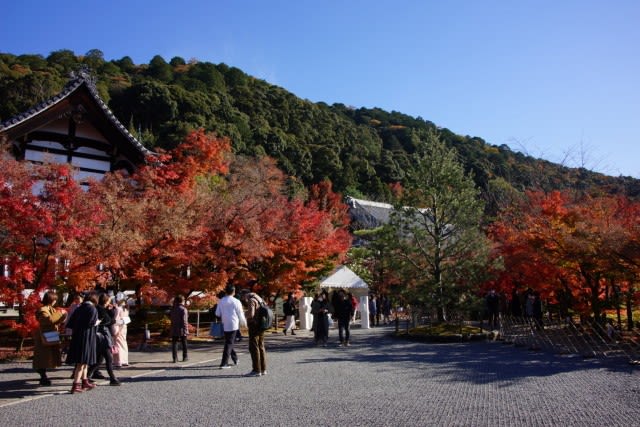The following is from an article by editorial board member Ruriko Kubota that appeared in the Sankei Shimbun on Nov. 28 under "Korean Scholar's Study of Belonging Property," challenging the anti-Japanese historical perspective.
*Emphasis in the text is mine, except for the following notes and headlines.*
Japan left assets on the Korean Peninsula during the annexation of Korea (1910-45) of 5.2 billion dollars (about 60 billion yen), and its current value is hundreds of billions of dollars (tens of trillion yen).
*This fact proves that a paper I discovered and published on the Internet long ago is correct.
The media, such as the Asahi Shimbun, which has dominated Japan, has not reported this fact, which is extremely important when considering the Japan-Korea problem.
The Ministry of Foreign Affairs has remained silent, and the fact that opposition politicians and politicians within the ruling party have not mentioned this fact at all.
It proves that they have encouraged South Korea, a country of "abysmal evil" and "plausible lies."*
Although Korea has inherited a vast amount of assets, from social infrastructure such as railroads and ports to private property, which served as the foundation for its economic development, it has been shunned as an "enemy product" forgotten.
A Korean economist, Professor Emeritus Lee Dae-geun of Sungkyunkwan University (82), has published the Japanese version of his book, "Research on Belonging Property," An empirical study of these Japanese assets.
Lee credits Japanese assets with bringing about an "industrial revolution" in the history of Korean development.
It is a letter of challenge to the anti-Japanese historical view that dominates Korea.
*The Japanese people and the rest of the world need to be reminded that the anti-Japanese historical view that prevails in Korea is nothing more than "unfathomable evil" and "deceptive lies. Even in Japan, the media and intellectuals, including the Asahi Shimbun and NHK, have cooperated with this Korea. There are countless pseudo-scholars and politicians worldwide, including Alexis Dudden of the United States*.
Huge Assets of Japanese Rule Ignored and Distorted
The United States seized Japanese assets left on the Korean Peninsula after the war, and the U.S. military called them "vested property," meaning they belonged to the U.S.
The "vested property" accounted for 80 to 85 percent of the national wealth of the Korean Peninsula at that time.
In 1948, with the establishment of the Korean government, the U.S. transferred it to Korea.
In addition to social services and tangible and intangible assets such as roads, railroads, ports, electricity, telephones, land reclamation, and water conservancy; public facilities such as government buildings, schools, hospitals, and temples; industrial facilities such as farms, fishing grounds, and mines; and social services, such as banks, securities, insurance, and real estate, the imputed property includes private enterprises and housing.
With the end of the war, the Japanese who lived and worked there were forced to return home with nothing but their clothes on their backs.
However, in Korea, the property's role in modern history has not been studied, and the intelligentsia has not adequately recognized even its existence.
It is said that after a long period since the end of World War II, it has disappeared from people's minds.
"It is nothing but ignorance of history and intellectual deception," Lee said.
Instead, South Korea has taught in anti-Japanese all over that the modern history of the annexation of Korea was "exploited and plundered by Japan."
The Korean Governor-General's Office Building in central Seoul was the largest and most magnificent building in the Orient when Japan completed it in 1926. Still, it was blown up and demolished during the 50th anniversary of the liberation of Korea from Japan by the Kim Young-Sam administration.
Mr. Lee is a pioneer in studying Japanese colonial rule in modern Korean economic history and is a senior member of the group that wrote: "Anti-Japanese Tribalism" (edited by Lee Young-hoon), which became a bestseller also in Japan.
Dr. Lee Dae-geun decided to conduct a comprehensive study of belonging property when he retired from university at 70.
He collected and analyzed a vast amount of materials for his book "Research on Belonging Property" (Bungei Shunju), which was published in Korea in 2015.
The "Industrial Revolution" that brought about
Lee's study traces how Japan formed assets on the Korean Peninsula before the annexation of Korea and what is left behind, and how the U.S. military administration handled these assets after the war and how they disappeared from the stage of history after being transferred to Korea.
The postwar U.S. seizure of the property was chaotic, and there was much embezzlement and looting by the Koreans and destruction of the property.
In addition, the property management system of the U.S. military administration, which wanted the Japanese to return home as soon as possible, was highly inadequate. As a result, the operation of the attributed entities was poor, resulting in a decline in factory utilization and a contraction of production.
Three years later, with the establishment of the Republic of Korea, the number of vested properties transferred from the U.S. military administration to South Korea rose to about 290,000. Under the Syngman Rhee administration, the public properties were paid off to state-run entities.
Dr. Lee Dae-geun argues that the legacy of Japanese colonial rule, including belonging property, is economical and covers human spirit, academics, legal system, and values. It should be regarded as colonial heritage, regardless of whether it is good or bad.
When Japan opened its doors to the world, it quickly translated terms and Western concepts from Dutch, English, German and other languages into Chinese characters.
During its rule, Korea introduced these terms and established a private property system and a market economy through an "indirect modernization process."
Some of the former Japanese companies confiscated and taken over by Korean companies later became Korean conglomerates.
In the postwar negotiations, the Japanese government provided $500 million in economic cooperation funds, $200 million of which was paid and $300 million free, to normalize diplomatic relations between Japan and Korea.
Mr. Lee assessed the industrialization of Korea through the property and economic cooperation funds as "two industrial revolutions."
He said that the imputed property, which supported the economic foundation in the 1950s, "quietly disappeared into the background of history" after the normalization of diplomatic relations in 1965.
Mr. Lee: "We Cannot Overlook This."
Mr. Lee said he had a sense of mission in conducting this research.
He felt that he could not just ignore the issue.
When asked again why Korea has ignored Japanese assets, Mr. Lee prefaced his remarks by saying, "It may sound counterintuitive."
If one were to evaluate the Japanese era as it was, one would undoubtedly be ostracized as a "traitor" and would be in a "miserable situation."
So everyone just pretended not to know.
The history academy, the government, and the mass media have been deeply stained by the ethnic historical view and have lost the will to correct the distortion of history.
In such a social atmosphere, "Japanese concealment" of Japanese assets was born, and "history as it should be" was fabricated instead of the facts, "blinding the entire nation to history," he says.
Is there any chance they will revisit Korea's anti-Japanese view of history?
Mr. Lee is pessimistic.
He is pessimistic because of the endless expansion of "Anti-Japanism" and its deep roots.
For example, Japan is a "Japanese nation," but Korea has misunderstood the word "Japan" as "dwarf" and has scorned the Japanese as "dwarfs.
Koreans are ashamed that they are ruled by a smaller, stupider "dwarf" than themselves.
This distorted psychology, this self-consciousness, is at the bottom of the Korean people.
The fact that Chinese Confucianism was introduced to Japan via the Korean Peninsula also makes Koreans look down on the Japanese with the awareness that "Japan is a latecomer to civilization history."
*The above statement is problematic and is beginning to be false.
The fact that the Korean peninsula was "a place without culture" has been revealed, and the fact that chili peppers are called "Japanese hot peppers" in Korea, etc., has been clarified. In other words, the distorted history that spread after the war is now being corrected.*
However, this sense of superiority has wholly changed with Japanese rule.
It is because Japanese rule was superior.
Affluent people sent their children to study in Japan.
However, with the defeat of Japan, Korean pursued these people as "pro-Japanese" overnight.
Mr. Lee described the annexation of Korea as "an unfortunate past, but perhaps it was the fate of both countries.
I see it as a product of the dynamics of international relations," he said objectively.
"I want to emphasize that Koreans need to have a mature attitude to take responsibility for their own actions. It's time to stop putting the blame on the other side, especially in international relations.," he said.














